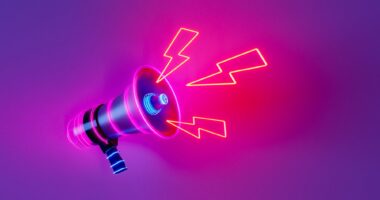
These three simple tricks will transform the way you work.
December 6, 2018 5 min read
Opinions expressed by Entrepreneur contributors are their own.
I love mornings. I’m one of those people who starts the day at 4 a.m. I’ve been running my business, Right Angles, for 20 years and I’d still found that, while brimming with enthusiasm before most people have even got out of bed, I was on the train home at the end of the day thinking, “What just happened?”
Related: 10 Simple Things Successful People Do Every Morning (Infographic)
The detailed bullet points on my to-do list, scribbled while full of hope and optimism, still sat there. It left me baffled. I’d been busy all day, too busy even to take a phone call from my wife after lunch as I rushed into a client meeting.
As I mentally retraced my steps, I had been busy all day, but only in the sense that I was perpetually distracted. The phone call from a colleague. An email from a client. A tweet, a Facebook update, a picture on Instagram. Reply, retweet, like, tag, repeat. With a perpetually full to-do list, I realized it was becoming a huge existential threat to my business.
It was then I remembered some advice given to me by a friend one day, years ago, over coffee. I was complaining that there weren’t enough hours in the day, when my open laptop flashed up with a new email. I was immediately distracted and clicked on it. How could I resist? It might be important. My friend said — and this is literally one of the most profound and obvious pieces of advice I’ve ever been given — “Why don’t you turn that off?” It changed my life.
The problem was, over time, I had allowed my smartphone to take its place, and I didn’t even notice it was happening. I immediately turned off all notifications on my phone and my concentration increased hugely. I was suddenly getting things done more quickly and, more importantly, it improved my business. I’m going to help you to do the same.
Related: Get it Done: 35 Habits of the Most Productive People (Infographic)
Think about it like this: If you’re driving down the road at a constant speed, you’re going to make good progress, but if you’re constantly stopping at traffic signals it takes time to get back up to speed afterwards as well. It’s the same with mental energy. The end result is you end up working in the business, rather than on the business, which kills creativity — and your bottom line.
The Udemy 2018 Workplace Distraction Report states that two-thirds of us spend an hour a day looking at our phones, and more than half can’t get through the day without looking at social media, citing Facebook as the top attention thief. Having your notifications turned on is effectively allowing Mark Zuckerberg to hold you hostage, whereas turning them off allows you to take back control. I guarantee you will suddenly find not just one, but maybe even two or more extra hours in your day.
The author of The 7 Habits of Highly Effective People, Stephen Covey, called this the “urgency addiction.” We’re born to react positively to that endorphin hit of the next email, the next tweet, the next call, robbing people of the time to think and reflect. But, you don’t need to be notified of new emails.
I spend about two hours a day on Slack. We have hundreds of client and project channels, and I’m in them all the time. But, if you @ mention me in a channel and I’m doing something else for an hour, I won’t get it. I don’t need to, because I know I’ll be looking at it in an hour anyway. You can only really focus on one thing at any one time, and it’s such an obvious and clichéd thing to say, but people don’t.
Related: How to Manage Time With 10 Tips That Work
A good way to manage this is called the Pomodoro Technique, a time management method invented in the late 80s, which breaks down tasks into 25-minute focused chunks. The trick is to set aside that time and promise yourself a five-minute “break” when you’ve finished where you can catch up with emails or grab a coffee. You’ll soon discover that it’s not a matter of not having enough time; it’s having the focus to not prioritize distractions. Do you really want your business not to fulfill its potential because you stopped for “just a minute” to scroll through Instagram?
As the chief executive of the business, time to think creatively is also incredibly important. If you’re perpetually distracted, you won’t have that great idea in the shower, which means you could miss that opportunity. In his book Create Space, Derek Draper, CEO of CDP Leadership Consultants, sets out how to actually set aside some thinking time otherwise you’re just constantly on the back foot.
It’s a cliché, but my best ideas always come to me when I’m doing something else. So, once you’ve turned off distractions, set aside time to focus, and given yourself time to get your most creative ideas, you’ll be amazed at the difference it makes.
This article is from Entrepreneur.com









